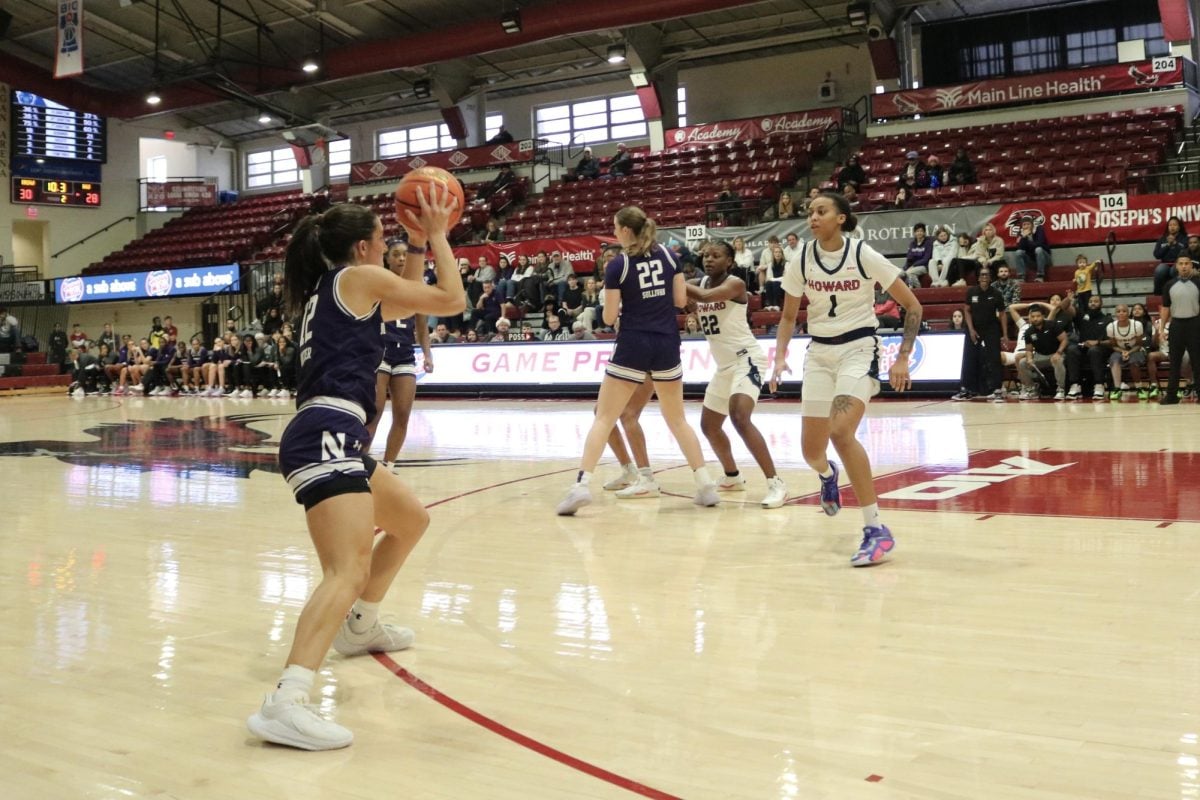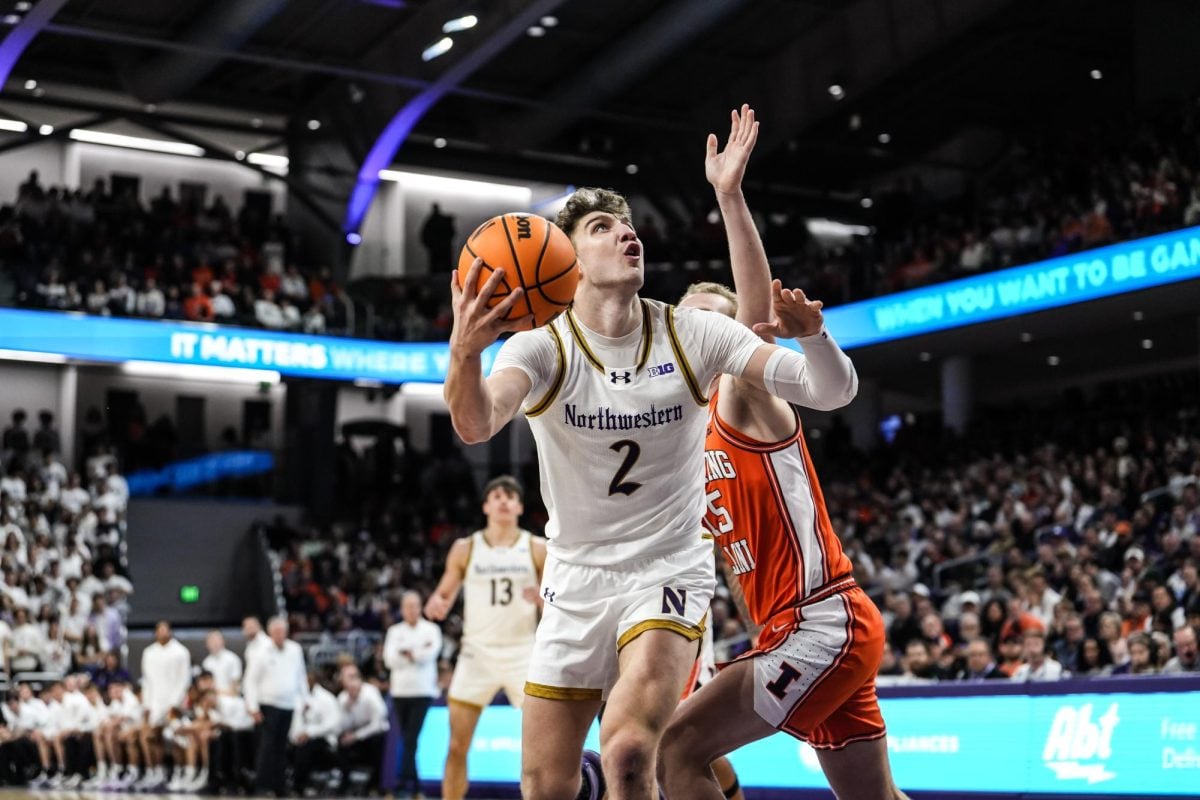Timing has been everything for April Likhite.
From the smooth, paved track to the unpredictable bumps on the path of life, time has always been on the Northwestern cross-country coach’s side.
She has built a strong, improving program. Twice.
She has pushed every runner she has coached to her limit. And then some.
But before she became the heart of the NU cross-country program, she had her own success at the college level.
Then known as April Ecke, she was an All-American in 1993 and was named SEC Student-Athlete of the Year in 1995. She still holds Mississippi State records in the 3,000-meter outdoor and 5,000-meter indoor and outdoor events.
With these tremendous academic and athletic accomplishments came a scholarship for Likhite, which enabled her to go to graduate school.
But the wear and tear of racing took a toll on the Bulldogs star. She was even granted a fifth year for indoor/outdoor track at Mississippi State but was unable to due to injury.
She knew her professional aspirations were over.
The Deep South
Likhite closed the chapter on her stellar cross-country career and headed to Tuscaloosa, Ala.
While she enjoyed her time as a graduate assistant at Alabama, Likhite still wasn’t quite sure that coaching cross-country at the college level was right for her.
“At that point, I wasn’t convinced that was what I wanted to do,” Likhite said. “I always saw myself teaching or even coaching at the high school level.”
Then, another door opened.
She found a similar position at the University of Alabama-Birmingham, a strong program in Conference USA. And she timed it just right.
“I was hired initially as an assistant coach,” Likhite said. “Only to have the head coach resign right after I got there.”
Likhite wasn’t even sure if she was ready to take on the role of a head coach at the Division I level. But she took on the job and lasted only one fall in Birmingham.
Resurrecting a Program
Travel almost 700 miles directly north from Birmingham and you will reach Evanston, Ill, home of the Northwestern Wildcats. NU boasts a strong academic program, close proximity to one of the country’s finest cities and a Division I sports program in a major conference. But there was an issue for cross-country athletes who wanted to run at Northwestern: There was no varsity program.
The men and women’s cross-country and track programs were demoted to the club level after the 1987 season. The women’s cross-country team was only a year removed from a second-place Big Ten finish and a top 20 ranking in the Division I poll. NU’s director of relations at the time, Ken Wildes, cited a decrease in attendance at football games as a reason why the athletic department had to start cutting programs. It was a classic case of increase in expenses and decrease in revenue. Someone had to take the fall.
There would be no 1988 season for the Cats’ cross-country and track teams.
The program remained buried at the club level until a fall morning in 1997, when then-president Henry Bienen announced to the press that women’s cross-country was coming back to the varsity level.
Their first step? Hire a coach.
Going Back Home
Likhite grew up in Wisconsin and is a Midwesterner at heart. So what was she doing down in the Sun Belt?
“I really enjoyed my time at UAB,” Likhite said. “So I wasn’t looking for a move this quickly. I just started working with this program.”
Likhite’s mentor, a NU alum, heard that the NU program was starting back up and recommended she go for an interview. But they were only initiating cross-country – not track and field.
“I didn’t even know cross-country only programs existed,” Likhite said.
So Likhite went back up to the Midwest to interview for the job.
“I got offered the position,” Likhite said. “I thought, ‘Oh my goodness, what a great opportunity to start a program from scratch.'”
She packed her bags in February of 1998 and traveled through a snowstorm to get to Evanston. Still in her mid-20s, she took on the responsibility of reviving a program that was nearly a decade removed from varsity competition.
“Honestly, I didn’t look back.”
Giving it the Ol’ College Try
Likhite lucked out when she got to campus. She found a solid group of girls from the club cross-country team who were excited to start training with her.
But Likhite had a hard time recruiting because of NU’s lack of a track and field program.
“The biggest challenge was trying to convince talented distance runners to come to a program that didn’t offer a track and field side of it,” Likhite said.
Each year, Likhite was given more and more scholarships to work with. She touted Northwestern’s strong academic program, something she felt distance runners really wanted.
But Likhite needed a strong recruiting class to start off her tenure to ensure the program wouldn’t be cut again. She looked no further than her home state of Wisconsin and on Nov. 23, 1998, Likhite made one of her most important signings: Rachel Evjen.
“When I was recruited by April, she struck me as someone I could relate to,” said Evjen, who is training for the Olympic marathon trials in January. “She had been through it as an athlete. When she recruited me as an athlete, she was still pretty young. It was one of those things where we just clicked.”
Likhite saw some success in her first year under the helm. She coached the Cats to a sixth-place Big Ten finish and a 12th-place Midwest Regional finish.
Evjen emerged the following year as NU’s alpha dog. She was the Cats’ top finisher in all eight races that year and even earned a place in the NCAA National Championship meet, an honor NU had not seen in a long time.
“April told you when you were sucking it up and when you were doing a great job,” Evjen said. “That was a great quality. She was a
ble to know when the right time was to say the right things.”
What might have been most impressive about her first tenure was how Likhite dealt with the small age gap between her runners and herself.
“When you’re in college, coaches are usually a little bit older,” Evjen said. “So when you’re having someone who’s within five or six years of you, they could be your buddy more than your authority figure. She did a good job of drawing the line between being a coach and a friend. At that age, you have to do that.”
The next year saw more of the same from Evjen. She was NU’s top finisher in all six races she ran. NU posted a fifth-place Big Ten finish and a fourth-place Midwest Regional finish.
The team was on the rise. Momentum was on its side heading into Evjen’s junior year.
But Likhite had a tough, personal decision to make.
She was newly engaged and her






